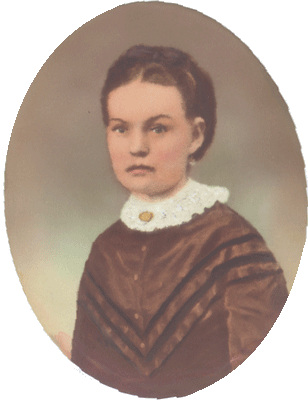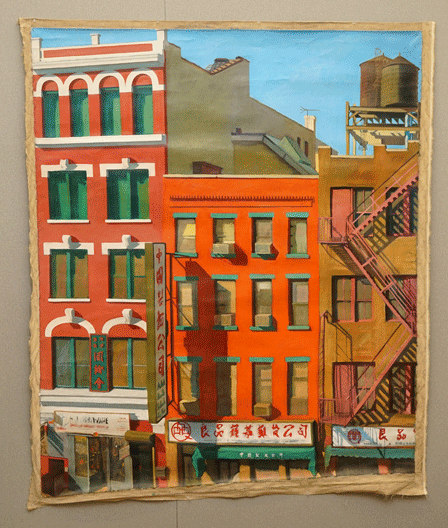
Inheritance
Wally Wharton, my father, wrote many wills and last testaments, a new one each time that a live-in girlfriend or a close friend of his died. Until 1982, when my mother predeceased him, each will had a paragraph bequeathing twenty-five cents to her. “Minerva Primm Wharton, that two-bit whore,” he wrote, referring to her. The rest of his modest estate was to be managed by his younger brother Jimmy Wharton, named executor of his wills.
It hurt me that my father demeaned my mother. I loved her, even when I hated her. She was naturally affectionate. I remember that once, when my sisters and I were young, she kissed me as she tucked me into bed, wistfully complaining that I was the only one of her children who permitted goodnight kisses.
But I was furiously angry that Wally deferred to his brother Jimmy in money matters. His reasoning was that he didn’t want his money spent on my mother, that I might try to share my inheritance with my mother. Jimmy could have put a stop to that.
Jimmy was a successful executive in the Detroit area, a smooth talker who represented General Motors in arbitrating labor disputes. He was married to Edna Mack, an American woman of pure Irish descent, a nurse. Her family was powerful in Midwestern politics.
I did not love Wally. I was a dutiful daughter, numb, a quiet warrior, a good worker and, until I left the Church as a teenager, I was a pious and innocent Catholic girl. Even now Good Friday is the most important day in the year to me. Jesus suffered. I felt his suffering when I was young. I tried to suppress all other feelings. I couldn’t be affectionate with living beings. I am pretty sure that I have not truly loved anyone but my mother and my four children. Perhaps I have also truly loved my idea of who Jesus was, as though he were one of my children.
Wally played at being an outrageous and witty bad boy, always shocking or intending to shock. One Christmas he visited us children bearing beautifully wrapped gifts. Each gift had a card attached. “Castrate the Priests,” proclaimed one card. My favorite was, “Thou hast conquered, O pale Galilean,” Swinburne’s flowery translation of the Emperor Julian’s apocryphal dying words lamenting the passing of paganism.
But Wally’s deep bitterness sometimes came to the surface. An older memory of mine has him throwing a plate at my mother during an argument. I see an image of my sisters and me cowering and clinging to our mother as she sat on the steps at the bottom of the stairway of our home, bleeding at the wrist.
Growing up as the children of divorced parents in an Irish Catholic neighborhood in the 40’s required defenses. There was only one other family with divorced parents in the parish. My mother suggested that we tell our friends that our father was away on a business trip.
But I am getting ahead of myself. A backstory must be told. I will start with Mary Elizabeth Walsh.

More than a hundred years ago, after the turn of the century, Gramma Wharton, Wally’s mother, nee Mary Elizabeth Walsh, came to St. Louis from County Tipperary to work as a housekeeper for a family named Carr, a prestigious name in St. Louis at the time. In the kitchen one day, a delivery boy of British descent fell in love with her. They married. They had three boys. My father was the first, born in 1908. Jimmy was the next.
The delivery boy worked as manager of five-and-dime stores until he got stomach cancer and died young. The men in his family were house carpenters. They built a house in South St. Louis for Gramma Wharton, now a widow. The house still stands. Gramma fed and supported herself and her family by sewing dresses for her neighbors, keeping a few chickens in a chicken coop in her back yard, and growing vegetables.
My mother, nee Minerva Clawson Primm, was mostly of French descent with an Irish grandmother on her mother’s side. The Primm family was socially prominent, descended from the earliest French settlers in the city. My mother never lost her sense of entitlement. She was handsomely Mediterranean, slightly swarthy, with straight dark hair and dark eyes like her father and all of her siblings. My father married up, into the class of St. Louisians that his mother had kept house for. The only problem was that my mother was the wrong color. He couldn’t love her because he had a fetish for extremely fair, especially, red-headed women. After he retired he kept his TV tuned all day long to any soap opera that starred red-headed women.
In choosing to mate with Wally my mother was following doctor’s orders. Her family doctor saw her at church with Wally one Sunday. He pulled her aside and whispered in her ear, “Marry that tall Irishman. Don’t marry the rich man you have been dating or all of your children will be crazy. Your family needs new blood.”
Somehow my mother got three children out of Wally in four years, despite his reluctance to have sex with her: Cornelia, Alexandra and me. At that time it was a sin for Catholics to use any form of birth control, and our mother was a practicing Catholic. I was the last child, and I was supposed to be named “Mary Elizabeth” after Gramma Wharton, but Wally left on an unnecessary trip out of town the day before I was born, so my mother boldly named me after herself, writing “Minerva Louise” on my birth certificate.
My sisters and I have extremely fair complexions. We look totally Irish, but it seemed that Uncle Jimmy felt we were not Irish enough to matter, even with our fair complexions. Jimmy and Edna’s four children were more Irish than we were. While Wally was included in Jimmy’s extended Irish family, we, Wally’s children, were not. We were seen as outsiders.
Not only did my mother predecease Wally, both of his younger brothers had died by 1982. My sister Alexandra convinced Wally to write a new will. She went with him to Mark Neal, a lawyer who had married into the Mack family.
In Wally’s new will, Jimmy’s older son and Alexandra were named co-executors. All of Wally’s books on Ireland were to go to our cousins, Jimmy’s children. Alexandra and I were to split all the money. Our big sister Cornelia had a comfortable life style in California and didn’t want for anything, so nothing would be bequeathed to her. She had visited Wally only once in 25 years. She was in the habit of sending Wally a photograph of her family every year, thus satisfying her filial duty.
“Wally, if you want to exclude Cornelia from your will, you will have to write, ’I disown my daughter, Cornelia,’ ” Mark Neal warned Wally.
“I can’t disown Cornelia,” Wally said.
“If you don’t make it clear that she gets nothing,” Mark argued, “she could tie up the will in the courts.”
“I can’t disown my daughter,” Wally said.
“But you are disowning her by not mentioning her,” Mark argued. “You need to make your intentions clear.”
“I cannot say that I disown Cornelia.” Wally said. He held firm. Cornelia was not mentioned in the will.
Alexandra told me the story of Wally’s unwillingness to lock the will in place against any claims that Cornelia might bring to the courts in Missouri. For once I admired my father. I saw a sense of paternal nobility in him that I had never seen before. I decided to forgive him for everything that I had ever held against him, even if it was only pride that motivated him. Maybe he had read King Lear, and feared being seen as a fool. Whatever the reason, he was at last a real father in my estimation.
In 1984, shortly after rewriting his will, Wally died. Alexandra and I emptied out his apartment. Our cousins took the books about Ireland, but they left one small ragged book behind. It lay flat on its back on an empty shelf, in the section where there had just been fancy picture books standing tall. I picked the book up. It was Knocknagow, or The Homes of Tipperary, by Charles Kickham, published in 1879.
Holding Knocknagow in my hands, I remembered how Wally had sometimes bitterly complained about the theft or loss of a book that his mother had brought with her to America from Tipperary. Could this be it? Had my cousins passed it by? All of a sudden my father’s drunken rants made sense. This little book, lost for years, hidden behind larger books, was a piece of Gramma Wharton and of Ireland. Now it was found. Now it was mine.
I used my share of the money that I inherited from Wally to pay rent on painting studios and to buy time to paint. I bought supplies, linen canvases to paint on and oil paints and brushes to paint with. My first studio was upstairs on Bowery between Grand and Hester. From its window I painted three pictures of the buildings directly across the street.
I rolled up the best painting of the three and sent it to Cornelia in California. I wanted to give her a share of the inheritance that allowed me to live like an artist for a few years until the money ran out. Cornelia stored the rolled up canvas in the back of a closet and then forgot where she had put it. Ten years later, while cleaning out the closet, she found it. Her daughter Dorothy, like me an artist and a lover of books, saw the painting and loved it, so Cornelia gave it to her.

This week Dorothy sent me a photo of the painting (shown above.) She has it tacked to the wall. Apparently the stretcher bars that I used when I stretched the canvas were uneven, so the image is not totally straight at its base. The canvas is imperfect, not quite a pure rectangle, like me and my sisters, Wally’s daughters, who are imperfect because we are not quite Irish enough.
Dorothy wrote this note to me:
I love this painting! It holds all the memories of my trips to NY and the time I spent with you and Alexandra and the rest of the family. They are very, very special memories for me. Thank you for all of that and for letting me enjoy your painting.
I loaned Gramma Wharton’s copy of Knocknagow to my daughter Teva to read. She delayed returning the precious book to me. When I insisted on having the book back, she confessed that her dog, Cooper, had chewed the book to shreds.
Teva doesn’t believe that we are related by blood to Charles Kickham, the beloved Irish patriot who wrote Knocknagow, but I remember hearing my father claim blood kinship during his rants. It doesn’t matter. Kickham belongs to everyone.
Yeats described Knocknagow as being “the most honest of Irish novels.”
Seán Ó Faoláin wrote a long piece in 1941 explaining why Knocknagow was the best-selling book in Ireland that any Irish novelist had produced up to that time. Ó Faoláin wrote, “This spirited and idealised novel, Knocknagow, written by a fenian who had been in jail, with the whole land question running through it, came in the precise moment that demanded such a book, and it was exactly of the right spirit for a people emerging from bad times. 'Thank God, there are happy homes in Tipperary still,' are the last spoken words of the novel, and they measure its qualified optimism.” Read Ó Faoláin's piece here:
Knocknagow can be downloaded FREE at:
http://www.exclassics.com/knockngw/knintro.htm
and here is an audio version of the book: https://archive.org/stream/knocknagoworhome00kickiala#page/n19/mode/2up
Minerva Durham, 2016


copyright © 2016 Minerva Durham
 index
index